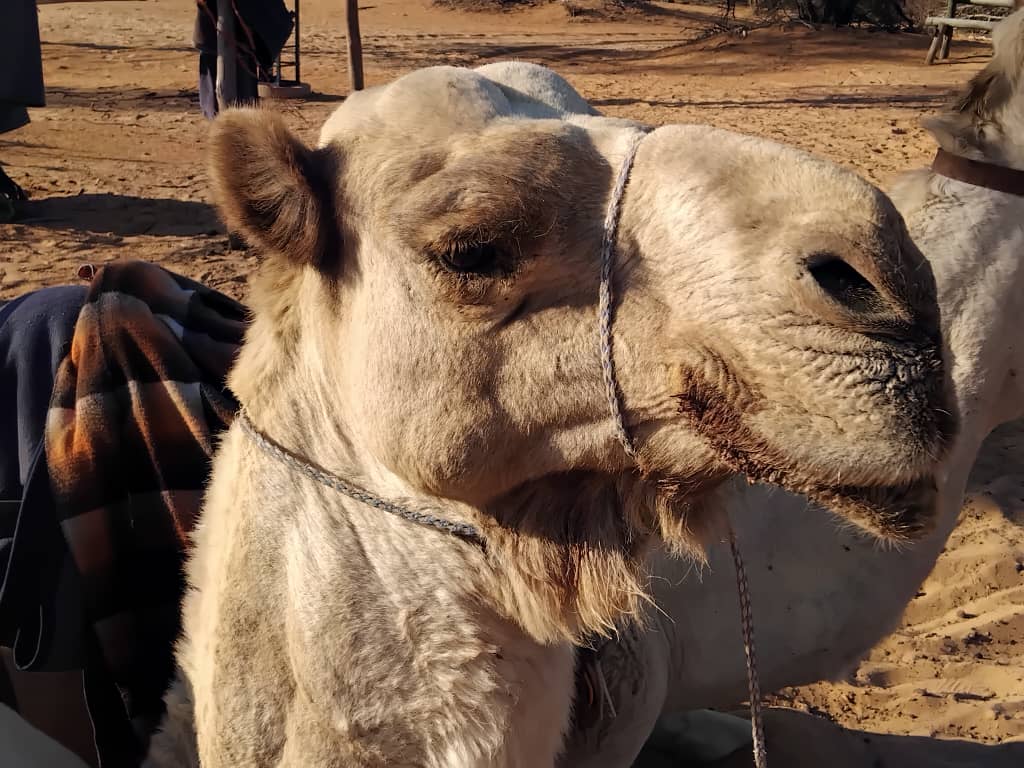The Tsabong Eco-Tourism Camel Park, once envisioned as a flagship community project, now finds itself at a critical juncture. Charles Proctor, Chairperson of the Tsamama Trust, which represents the communities of Tsabong, Maubelo, and Maleshe, has expressed concerns over the park’s financial sustainability and the ongoing impasse with the Tsabong Sub-Landboard over a crucial land allocation.
The park, which operates as a joint venture under Tsamama Tours, in partnership with the Botswana Tourism Organisation (BTO), has struggled to break even since its inception. Proctor points to mismanagement under the previous board as the root cause, saying, “The park was never properly marketed or managed, especially given that it’s located in the remote Kalahari, an underdeveloped and under-promoted region of the country.”
The Tsamama community holds a 49% stake in the venture, with BTO owning the remaining 51%. Despite their best efforts, Proctor and his board are still working under an old shareholder agreement signed by the previous administration, which expired in March 2024. Proctor is hopeful that discussions with BTO will soon commence to review the contract and address the unmet community obligations tied to the project.
One of the park’s most pressing challenges is overpopulation. Housing 500 camels on a 4 km² area—three times the park’s intended capacity—has led to severe overgrazing. This, coupled with ongoing drought, has pushed the park to the brink.
Proctor explains that Tsamama Trust had identified a piece of land in Maubelo to relocate the camels and alleviate the overgrazing issue. However, after three years of bureaucratic delays, the land allocation process remains at a standstill. “The Landboard has been giving us the runaround for years, and it’s now at a point where we’ve involved district leadership to resolve the impasse and we arw hopeful that with the new council secretary our matter will be given the urgency it deserves,” Proctor stated.
This delay has broader implications. The American Embassy has expressed interest in supporting the project through a grant aimed at establishing a camel farm for the production of milk and meat. However, Proctor emphasised that without land, this potential enterprise remains on hold.
“We have plans not just for translocation but to create a fully-fledged farm where we produce camel milk and meat. This could generate jobs for the local community and even support a research centre to educate the youth about camel science and history,” Proctor remarked. He added that camel milk, which boasts numerous health benefits, and meat could have a significant market within Botswana and abroad. Yet, none of this is possible without the requisite land and infrastructure.
Proctor shared that the Trust, 3 years ago, had filed an urgent application with the Tsabong Sub-Landboard, accompanied by all necessary documentation. They even invited council representatives from the business unit on multiple occasions to tour the park and witness firsthand the overpopulation crisis. “We hoped they would appreciate the urgency of the matter, but the delays continue,” Proctor said.
Despite these setbacks, the Trust is trying to find innovative solutions. Last year, they launched an initiative called “Walk on Sand Dunes for Camels,” which featured Botswana’s First Lady in its debut event. This year, the initiative attracted tourists from South Africa and Lesotho, but Proctor believes that profits will only materialise in the coming year.
As the park struggles under its current conditions, the standoff with the Tsabong Sub-Landboard threatens its future. Without swift resolution and the allocation of land, the dream of a thriving camel milk and meat enterprise, along with the preservation of the park itself, could remain unrealised.
